Share
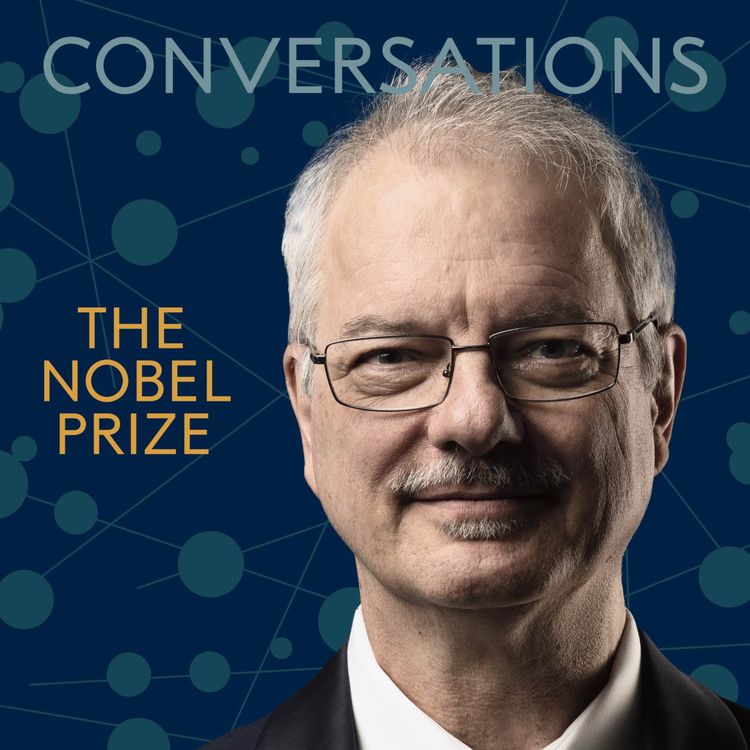
Nobel Prize Conversations
Morten Meldal: Nobel Prize Conversations
•
“My daughter was sitting on the second or third row and I could see that she was crying. And tears actually are contagious. So I was almost crying when I had to go up and receive the prize because of that.” — This is how Morten Meldal recalled the moment he crossed the stage in Stockholm to receive his Nobel Prize medal.
Host Adam Smith speaks to 2022 chemistry laureate Morten Meldal, who opens up about his interests outside science, such as painting, books, music, and even building his own guitars.
More episodes
View all episodes
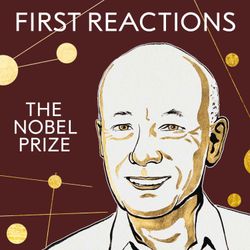
First reactions | Peter Howitt, prize in economic sciences 2025 | Telephone interview
03:37|“I’m not one of these people who keeps the phone on, and the champagne in the fridge.” Peter Howitt certainly didn’t seem to be expecting the news of his 2025 prize in economic sciences. In this call recorded just after the announcement, he talks to the Nobel Prize’s Adam Smith about his longstanding friendship with fellow-laureate Philippe Aghion and how they started their collaboration in the conducive environment of MIT. “My future,” he concludes, “is going to involve more economics, and less golf, than I had anticipated!” © Nobel Prize Outreach. First reactions terms of use: https://www.nobelprize.org/ceremonies/streams-terms-of-use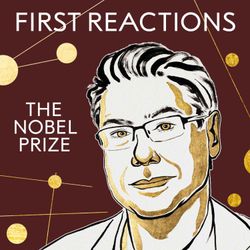
First reactions | Philippe Aghion, prize in economic sciences 2025 | Telephone interview
05:38|“Peter, Peter, make yourself available, your phone, they’re trying to reach you!” Listen to Philippe Aghion telling Peter Howitt that the Royal Swedish Academy of Sciences has been attempting to call him, captured as part of this call made shortly after the public announcement of their joint 2025 economic sciences prize. In this conversation with the Nobel Prize’s Adam Smith he also reveals his joy and surprise at the news, discusses the implications of their ‘creative destruction’ model of sustained economic growth, and suggests paths to ensuring that the fruits of growth can be more widely shared. © Nobel Prize Outreach. First reactions terms of use: https://www.nobelprize.org/ceremonies/streams-terms-of-use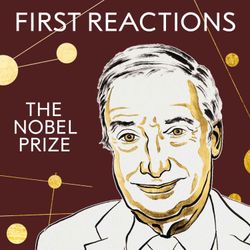
First reactions | Joel Mokyr, prize in economic sciences 2025 | Telephone interview
03:12|“I had a whole list of people that I thought were going to win,” says Joel Mokyr, “And I wasn’t on it.” Waking early, he opened up his computer to find out who had been awarded the 2025 prize in economic sciences, and found emails saying ’Congratulations.’ Then, as Mokyr tells the Nobel Prize’s Adam Smith in this brief call, he saw missed calls from Sweden on his phone and, “The suspicion started to ripen!” © Nobel Prize Outreach. First reactions terms of use: https://www.nobelprize.org/ceremonies/streams-terms-of-use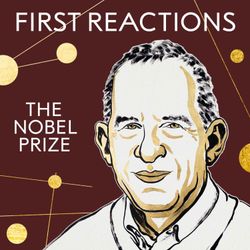
First reactions | Michel Devoret, Nobel Prize in Physics 2025 | Telephone interview
09:23|“I would say a fundamental discovery really becomes true when you can apply it to something concrete.” In this conversation, recorded after two hectic days following the prize announcement, new physics laureate Michel Devoret reflects on the excitement of seeing the fruits of research. He also talks about his co-laureate John Clarke, one of his role models, together with Lord Kelvin. Devoret describes how he woke on announcement day to find that the world already knew the news: “I had completely forgotten that October was the Nobel Prize month!” © Nobel Prize Outreach. First reactions terms of use: https://www.nobelprize.org/ceremonies/streams-terms-of-use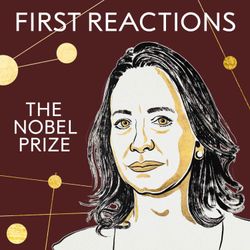
First reactions | Maria Corina Machado, Nobel Peace Prize 2025 | Telephone interview
04:40|“I am just part of a huge movement. I’m humbled, I’m grateful and I’m honoured.” – The announcement of the 2025 Nobel Peace Prize came as a huge surprise to Maria Corina Machado. In this interview, recorded directly after the news was broken, she describes how honoured she feels, and highlights the strength of her fellow Venezuelans. “I accept this is as a recognition to our people, to the millions of Venezuelans that are anonymous and are risking everything they have for freedom, justice and peace and I’m absolutely convinced that we will achieve it.”Maria Corina Machado was interviewed by Robyn E. Hardy, Assistant Research Manager at the Norwegian Nobel Institute. © Nobel Prize Outreach.First reactions terms of use: https://www.nobelprize.org/ceremonies/streams-terms-of-use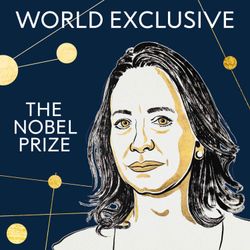
Finding out the news | Maria Corina Machado, Nobel Peace Prize 2025
04:21|“Oh my god… I have no words.” – Listen to the emotional moment this year’s laureate Maria Corina Machado finds out she has been awarded the Nobel Peace Prize.Kristian Berg Harpviken, Director of the Norwegian Nobel Institute, shared the news with her directly before it was announced to the world. The Nobel Peace Prize 2025 was awarded to Maria Corina Machado "for her tireless work promoting democratic rights for the people of Venezuela and for her struggle to achieve a just and peaceful transition from dictatorship to democracy" © Nobel Prize Outreach.First reactions terms of use: https://www.nobelprize.org/ceremonies/streams-terms-of-use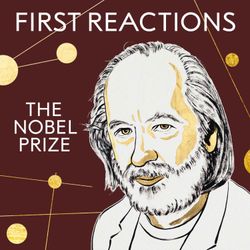
First reactions | László Krasznahorkai, Nobel Prize in Literature 2025 | Telephone interview
07:57|“I’m very proud to be in the line of some really great writers and poets.” In this interview, new literature laureate László Krasznahorkai shares his happiness about his Nobel Prize, which came as a surprise. Krasznahorkai speaks about how bitterness is an important driver for him, and also highlights the importance of using your fantasy. “Without fantasy, it’s an absolute different life. To read books gives us more power to survive these very difficult times on Earth.” © Nobel Prize Outreach. First reactions terms of use: https://www.nobelprize.org/ceremonies/streams-terms-of-use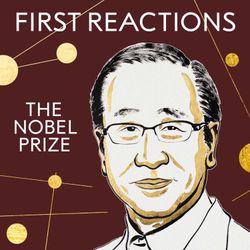
First reactions | Susumu Kitagawa, Nobel Prize in Chemistry 2025 | Telephone interview
05:39|“This is the mind of the researcher in Japan,” says Susumu Kitagawa, “Don’t switch off the light, even at night.” In this short conversation recorded the day after the announcement of his Nobel Prize in Physics, Kitagawa talks to the Nobel Prize’s Adam Smith about his approach to tackling grand challenges, and how to keep a lookout for the unexpected. He also explains how his perspective on research has a lineage that extends back to other Japanese Nobel Prize laureates Kenichi Fukui, Akira Yoshino and even Hideki Yukawa, the very first Nobel Prize laureate from Japan.© Nobel Prize Outreach.First reactions terms of use: https://www.nobelprize.org/ceremonies/streams-terms-of-use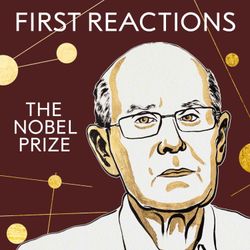
First reactions | Richard Robson, Nobel Prize in Chemistry 2025 | Telephone interview
08:49|“Some people thought it was a whole load of rubbish. But it didn’t turn out that way.” Richard Robson’s new concept for molecular architecture, which occurred to him while building models for teaching, was the starting point for the burgeoning field of metal–organic frameworks. In this conversation with the Nobel Prize’s Adam Smith, recorded just after his Nobel Prize in Chemistry was announced, he recounts how this new idea emerged and how, in the end, he just had to do something about it. He also offers some modest reflections on a long life in chemistry, which he says wasn’t exactly a vocation: “I sort of drifted into it, I couldn’t think of anything better to do.”© Nobel Prize Outreach.First reactions terms of use: https://www.nobelprize.org/ceremonies/streams-terms-of-use